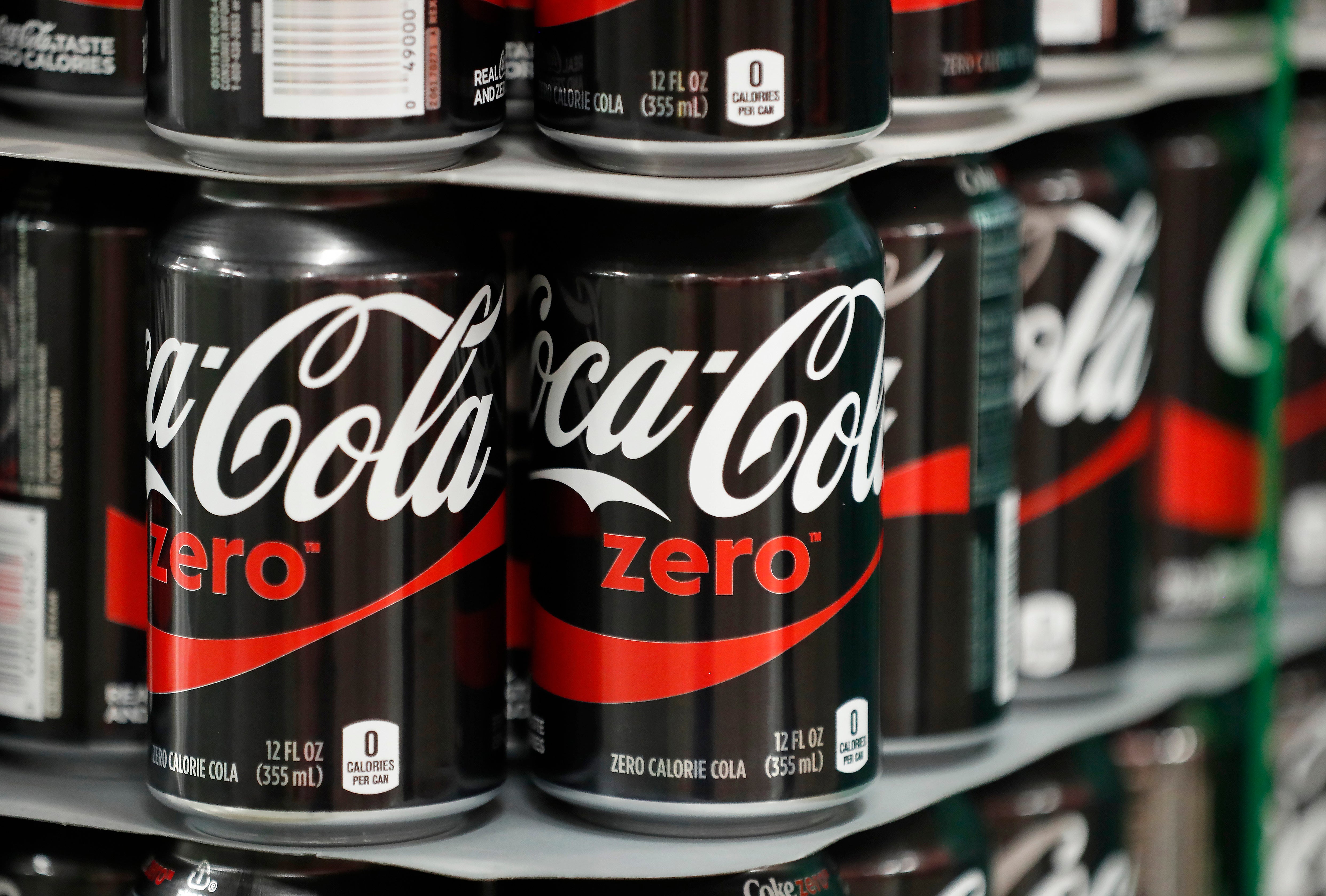Drinking Diet Coke and other similar beverages may be associated with a higher risk of heart attack and stroke, among other health issues, according to new research.
Although the reason remains unclear, some scientists say the drink’s artificial sweeteners may trigger inflammation and alter metabolism, gut and blood vessels.
Researchers at the Harvard T.H. Chan School of Public Health said the sweeteners may promote type 2 diabetes, high blood pressure, and unhealthy cholesterol levels.
“Do not take it for granted that drinking low-sugar and low-calorie artificially sweetened beverages is healthy, it may pose potential health risks,” Dr. Ningjian Wang, a researcher at the Shanghai Ninth People's Hospital in China, said in a statement.
People with diabetes or those trying to lose weight may turn to artificial sweeteners and could already be at risk for potential problems. But the overall message from medical professionals is clear.
A study from U.C. Irvine found people who consumed the most artificial sweeteners had a 9 percent higher risk for cardiovascular disease and an 18 percent greater risk for stroke or other disease. The American Heart Association found that adults who drink about two liters or more of artificially sweetened drinks per week had a higher risk of an irregular heartbeat.
"Avoiding added artificial sugars makes sense, and this study helps to support that," UC Irvine health cardiologist Dr. Elizabeth H. Dineen said.
Several sweeteners appear to be the most problematic, including those used in Diet Coke and Coke Zero, researchers found. A request for comment from Coca-Cola was not immediately returned.
The sweetener aspartame — which is also widely known as the brand Equal — and sucralose, or Splenda, have been linked to a higher risk of stroke and coronary artery disease. Aspartame is also used in chewing gum, ice cream, cereal, cough drops, and yogurt. It’s 200 times sweeter than regular sugar and was approved by the Food and Drug Administration as a general-purpose sweetener in 1996.
It is widely recognized as one of the most researched ingredients in the world. The FDA says it disagrees with conclusions that studies support classifying aspartame as a possible carcinogen to humans.
“Scientific evidence has continued to support the FDA’s conclusion that aspartame is safe for the general population when made under good manufacturing practices and used under the approved conditions of use,” the agency says.
“The assessments of aspartame have indicated that, while safety is not a major concern at the doses which are commonly used, potential effects have been described that need to be investigated by more and better studies,” the World Health Organization’s Dr. Francesco Branco said.

That doesn’t mean people cannot consume it. Moderate use should be fine. Coca-Cola notes that people with the rare hereditary disorder phenylketonuria should strictly limit their intake of phenylalanine: a common amino acid found in aspartame.
“A 2022 study found that people who consumed higher amounts of aspartame had a slightly higher risk overall of developing cancer, especially breast cancer and obesity-related cancers. However, it is unclear precisely what amount of aspartame a person would need to consume over time to increase their risk of developing cancer,” City of Hope Orange County Lennar Foundation Cancer Center oncologist Dr. Misagh Karimi said.
So, how much is too much? Just a couple of drinks may increase your risk for negative health outcomes, Michelle Routhenstein, a New York-based registered dietitian who specializes in heart disease, told Fox News Digital.
"Research shows that drinking two or more artificially sweetened beverages per day may increase the risk of heart disease and stroke," she said.
Common sugar substitute may contribute to higher risk of vascular scares like stroke, study finds
Should I give up Diet Coke? With aspartame under suspicion, an addict speaks
Diet Coke safe as long as you don’t drink 14 cans every day, WHO says after aspartame cancer fears
Tots and Tales: Sonic partners with authors for new summer menu items
Nebraska becomes first state with waiver to ban soda on food stamps in win for MAHA
Children sick after parents follow influencer’s advice to ‘cure’ autism with bleach







